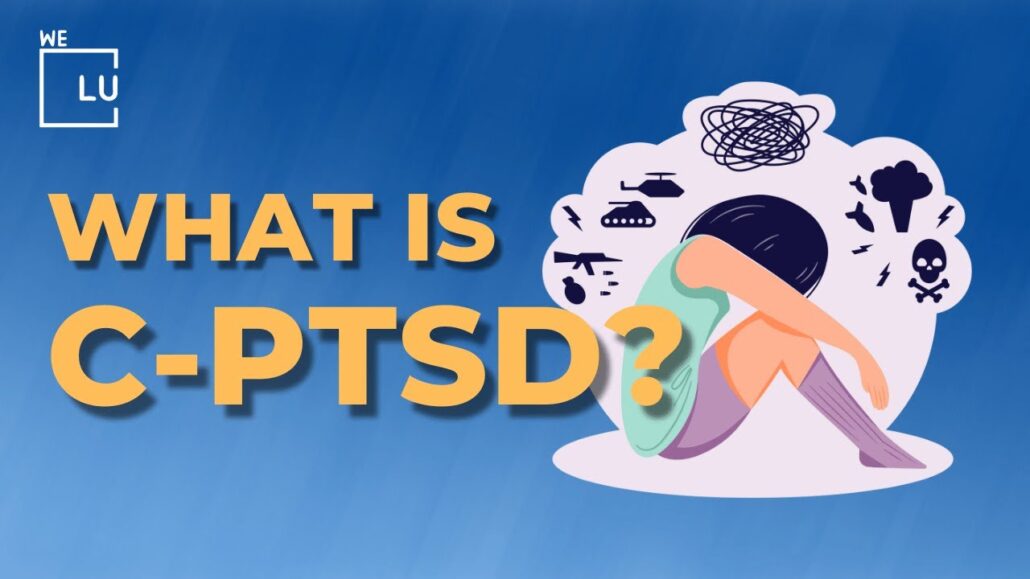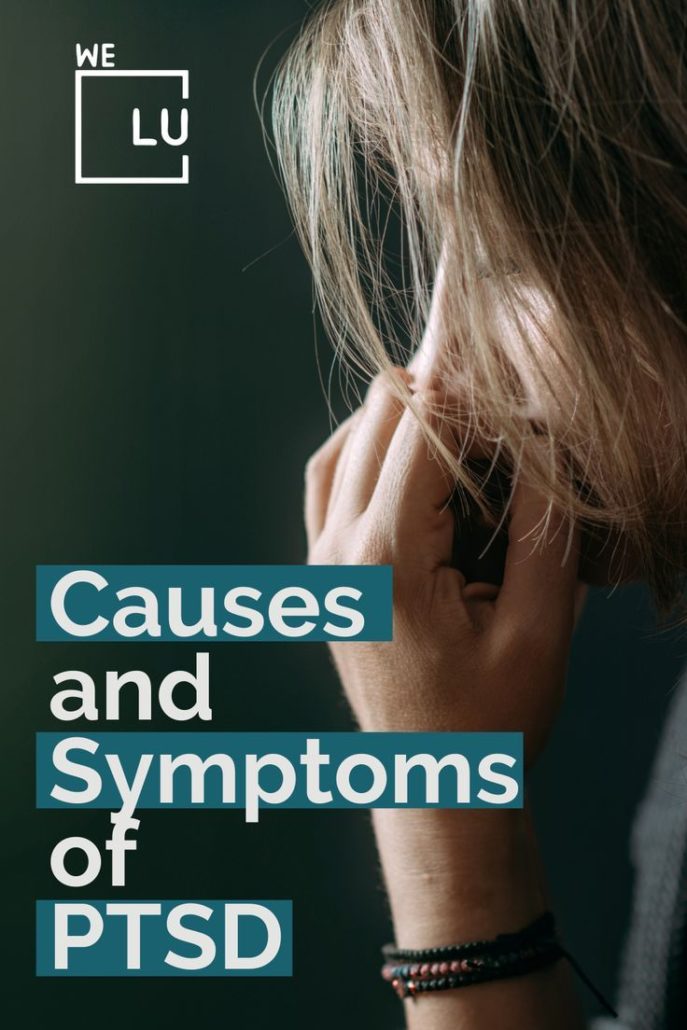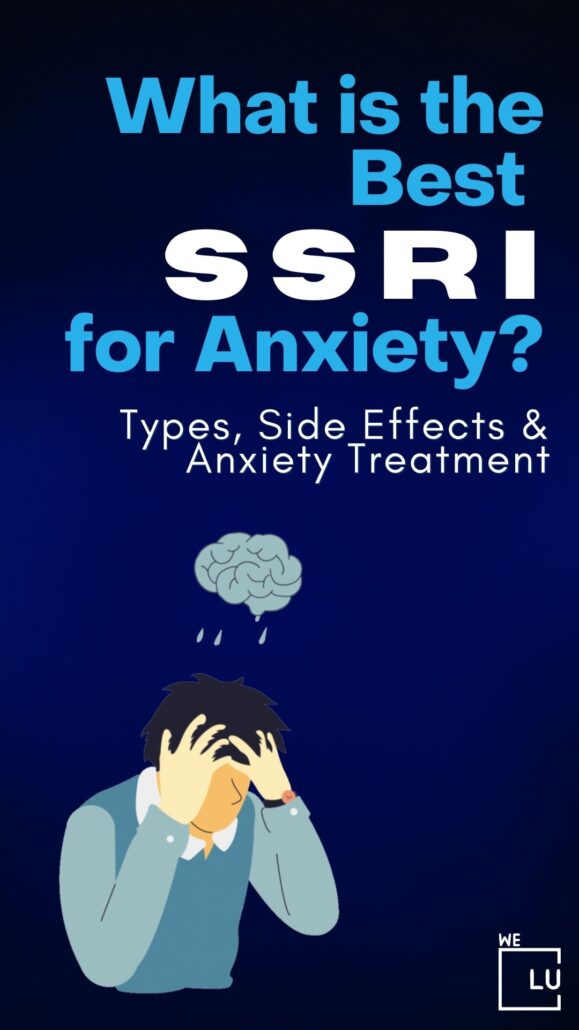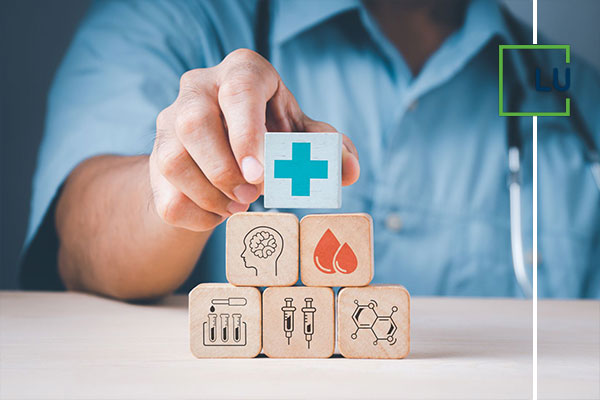Though promising for PTSD, MDMA isn’t approved yet. It has risks like reactions, heart problems, and addiction. Consider all this with a qualified PTSD therapist before treatment, with their supervision in a controlled setting. Other PTSD treatments exist, which should be evaluated before proceeding to more controversial and risky therapies.
What is MDMA PTSD Treatment?
MDMA, the intended active ingredient in illicit Ecstasy or Molly drugs, is a psychedelic that induces an elevated mood, heightened empathy, and boosted energy. In MDMA therapy for PTSD, patients are subjected to 2 or 3 multi-hour sessions of treatment with a team of mental health professionals. The dosing of MDMA for PTSD is utilized to permit the therapist to examine the underlying trauma without provoking emotional distress.
Therapists are investigating the potential of MDMA, also called Molly (3, 4-methylenedioxy-N-methamphetamine), for treating severe post-traumatic stress disorder (PTSD). PTSD affects a whopping 3.5% of U.S. adults, amounting to millions who suffer from this overwhelming condition.
Are you struggling with PTSD or MDMA dependence and addiction? Your opportunity for healing is within reach. Contact We Level Up Florida Treatment Center for compassionate support. Every call to our 24/7 hotline is free and confidential.
How Does MDMA Help PTSD?
PTSD often follows traumatic experiences like accidents, abuse, or war, causing flashbacks and nightmares. Unfortunately, severe cases of PTSD may lead to suicide.
While there’s no direct medication for PTSD, some medicines ease symptoms. Psychotherapies, such as cognitive behavioral therapy, can help, but dropout rates are high, and many still have symptoms afterward. That’s where ongoing MDMA PTSD therapy studies may come in.
In a clinical setting, experts found MDMA may assist PTSD patients in opening up about traumatic events. Although not legally approved due to its recreational history, the FDA has recognized its breakthrough therapy status for treating PTSD symptoms since 2017.
MDMA is a Schedule I drug under the Controlled Substances Act, meaning it has a high potential for abuse. It has no currently accepted medical use for treatment in the U.S., according to the Drug Enforcement Administration.
How Does MDMA Work?
MDMA, or 3,4-methylenedioxymethamphetamine, triggers the release of neurotransmitters—chemical messengers influencing brain activity—including “feel-good” hormones, such as:
- Dopamine.
- Serotonin.
- Norepinephrine. (along with oxytocin, prolactin, cortisol, and vasopressin.)
The effects of MDMA for PTSD can include feelings of:
- Elevated mood.
- Increased empathy.
- Emotional openness.
- Reduced fear and anxiety.
- Enhanced self-awareness.
- Improved interpersonal connection.
- Energy boost.
- Altered perception of time and space.
What Does MDMA for PTSD Treatment Look Like?
This structured approach lets you explore and process experiences comfortably, integrating insights gained during each session for a transformative therapeutic experience. The therapist will tailor sessions to your needs, ensuring a personalized approach to unlock the potential benefits of MDMA-assisted therapy.
Researchers express optimism about employing MDMA-assisted therapy, proposing that it might outperform current treatments for severe PTSD. Notably, PTSD MDMA therapy has led the symptoms to show improvement after only two or three sessions, and there are long-term benefits, as evidenced by 67% of participants no longer meeting PTSD criteria a year after completing the treatment.
In acknowledgment of these promising results, the FDA has granted “expanded access status” to MDMA-assisted therapy, allowing its application for severe, life-threatening PTSD cases without the need for clinical trials.
The regulated setting contributes to minimizing the possibility of substance abuse. The MDMA treatment for PTSD emerges as a cost-effective alternative compared to other extensive and drug-intensive therapies for severe PTSD.

Skip To:
Learn More:
- What are the 17 Symptoms of Complex PTSD? Complex PTSD Symptoms.
- How to Find PTSD Counseling Near Me?
- Free Complex PTSD Quiz. Online Do I Have Complex PTSD Quiz? Fast Easy Pro CPTSD Quiz.
- CPTSD and Relationships
- PTSD from Emotional Abuse
- Acute Stress Disorder Vs PTSD
- Is PTSD a Disability?
- What are PTSD Triggers? How to Deal with PTSD Triggers?
- What To Do When Someone With PTSD Pushes You Away?
- PTSD Therapy Near Me. Post-Traumatic Stress Disorder Guide.
Get PTSD treatment and counseling that works. Reach out for professional support with a free call to our 24/7 mental health hotline.
Get Help. Get Better. Get Your Life Back.
Searching for Accredited Dual Diagnosis Mental Health Centers Near You?
Even if therapy failed previously, or are in the middle of a difficult crisis, we stand ready to support you. Our trusted behavioral health specialists will not give up on you. When you feel ready or just want someone to speak to about counseling alternatives to change your life call us. Even if we cannot assist you, we will lead you to wherever you can get support. There is no obligation. Call our hotline today.
FREE 24/7 Dual Diagnosis Mental Health Services HotlineSafety Concerns About the Use of MDMA for PTSD
MDMA has long been associated with a stigma due to its use as Ecstasy and Molly in party settings. Despite past concerns about its potential harm, recent research by specific organizations challenges these perceptions.
While MDMA for PTSD therapy doesn’t erase traumatic memories, it fosters a healthier relationship with them. However, the downsides include the following:
- Cost.
- Time-intensive nature.
- Potential for addiction.
To mitigate risks, researchers emphasize supervised administration in a controlled treatment facility. Concerns also linger regarding its impact on individuals with comorbidities, where more research is needed for a comprehensive understanding.
Other Common Side Effects of MDMA for PTSD
While MDMA-assisted therapy has potential benefits for certain conditions, it’s crucial to be aware of possible risks. The following are the most common side effects:
- Nausea.
- Increased heart rate.
- Sweating.
- Jaw-clenching or teeth grinding.
- Muscle tension.
- Blurred vision.
- Chills.
- Anxiety.
- Insomnia.
- Reduced appetite.
The drug’s recreational history also raises concerns about abuse and addiction. Before considering MDMA therapy, it’s essential for individuals to consult with healthcare professionals, weigh potential benefits against risks, and explore safer alternatives.

End the Emotional Pain. Get Your Life Back.
Feeling Depressed, Anxious or Struggling with Mental Health Illness? Get Safe Comfortable Mental Health Dual Diagnosis High-Quality Therapy From Counselors That Care. Begin Your Recovery Now.
Hotline (855) 940-6125How Does MDMA Affect the Brain?
MDMA, colloquially known as Ecstasy or Molly, exerts its impact on the brain through intricate interactions with neurotransmitters, influencing mood and perception profoundly. This process involves a cascade of neurochemical events:
- Serotonin Release: MDMA mainly focuses on neurons that produce serotonin, causing a significant boost in serotonin release. Serotonin is like the brain’s happy juice.
- Dopamine Release: The concurrent elevation of serotonin and dopamine holds a pivotal role in the distinctive euphoria linked to MDMA usage.
- Norepinephrine Release: The drug amplifies the release of norepinephrine, fostering heightened alertness and an accelerated heart rate. This augmentation contributes to the stimulating effects characteristic of MDMA.
MDMA use also prompts the release of oxytocin, fostering feelings of emotional closeness.
It’s imperative to approach MDMA cautiously, considering individual health factors and being aware of the potential for adverse reactions. Consulting with a healthcare professional ensures a comprehensive understanding of associated risks and responsible use.
The Evidence About the Use of MDMA for PTSD
Research on MDMA’s potential for treating PTSD shows promising results. Clinical trials indicate that MDMA-assisted therapy may offer significant benefits for individuals with severe PTSD. Studies report improvements in symptoms, with some participants no longer meeting PTSD criteria a year post-treatment. The FDA’s recognition of MDMA-assisted therapy as “breakthrough therapy” reflects its potential. However, ongoing research explores safety concerns and individual responses. While results are encouraging, careful consideration and further investigation are essential to establish MDMA’s efficacy, safety, and long-term outcomes in treating PTSD.
MDMA, or Ecstasy, is known for its therapeutic potential, but using it recreationally comes with addiction risks. The euphoria it brings may lead to psychological dependence as users seek the intense pleasure and emotional openness it provides. Regular use can disrupt the brain’s serotonin system, causing mood disturbances and fostering a cycle of use to cope with negative emotions. Moreover, MDMA’s impact on neurotransmitters may build tolerance, prompting higher doses for desired effects. Despite its therapeutic promise, recreational MDMA use requires caution, considering the potential for addiction and associated health risks. It’s a delicate balance between its benefits and potential pitfalls.
Studies and Research Supporting MDMA-Assisted Therapy for PTSD
Evidence Supporting MDMA-Assisted Therapy for PTSD
Below are prominent studies demonstrating the efficacy and safety of MDMA-assisted therapy for PTSD, along with their URLs:
Phase 3 Trial:
- MDMA-assisted therapy for moderate to severe PTSD. In a randomized, placebo-controlled phase 3 trial, this study found significant reductions in PTSD symptoms with improved functioning in patients receiving MDMA-assisted therapy as compared to placebo. Of note, adverse events were mild and only transient. (https://www.nature.com/articles/s41591-023-02565-4)
Phase 2 Trials:
- A randomized, double-blind, placebo-controlled trial of MDMA-assisted psychotherapy for treatment-resistant PTSD: This study showed promising results, with 83% of the MDMA group no longer meeting PTSD criteria at 12 months compared to 25% in the placebo group. (https://pubmed.ncbi.nlm.nih.gov/34708874/)
- MDMA-assisted psychotherapy for PTSD in adults with comorbid substance use disorders: This study demonstrated the effectiveness of MDMA-assisted therapy even in patients with co-occurring substance use disorders. (https://pubmed.ncbi.nlm.nih.gov/34708874/)
Additional Supporting Evidence:
- Current Perspective on MDMA-Assisted Psychotherapy for Posttraumatic Stress Disorder: This review article summarizes the findings of several studies, highlighting the overall positive evidence for MDMA-assisted therapy in treating PTSD. (https://www.nature.com/articles/s41591-021-01336-3)
- MDMA-assisted psychotherapy for people diagnosed with treatment-resistant PTSD: what it is and what it isn’t: This article provides an overview of MDMA-assisted therapy and its potential benefits for PTSD, with a focus on safety and long-term outcomes. (https://pubmed.ncbi.nlm.nih.gov/34708874/)
Notes:
- While these studies show promising results, more research is needed to fully understand the long-term effects and potential risks of MDMA-assisted therapy.
- This therapy is not currently approved for general use and is only available in clinical trials or through compassionate access programs.
- MDMA-assisted therapy should be conducted by trained professionals in a controlled setting.
Always consult with a mental health specialist for MDMA treatment for PTSD. Call the We Level Up Treatment Center helpline for personalized advice and treatment options.
Do you have questions about how to treat PTSD through a comprehensive program? Call the We Level Up helpline 24/7.
First-class Facilities & Amenities
World-class High-Quality Mental Health Services & Behavioral Health Substance Abuse Treatment
Rehab Centers TourRenowned Mental Health Centers. Serene Private Facilities. Inpatient Rehab Programs Vary.
Mental Health Helpline (855) 940-6125Proven recovery success experience, backed by a Team w/ History of:
15+
Years of Unified Experience
100s
5-Star Reviews Across Our Centers
10K
Recovery Successes
- Comprehensive Dual-Diagnosis Treatment
- Complimentary Family & Alumni Programs
- Coaching, Recovery & Development Events
- Comfortable Onsite Medical Detox Center
PTSD Treatment Options
PTSD treatment has different forms, and MDMA is just one part of it. Everyone reacts differently, and PTSD severity varies. While MDMA-assisted therapy shows promise, it might not be suitable for everyone due to factors like medical history and potential side effects.
Choosing the best treatment involves considering individual preferences, medical factors, and PTSD symptoms. Consulting with mental health professionals is crucial to creating an effective treatment plan that suits each person’s needs.
Cognitive Behavioral Therapy for PTSD
CBT is a widely used psychotherapy for PTSD. It focuses on identifying and changing negative thought patterns and behaviors associated with traumatic experiences. Therapists work with individuals to develop coping strategies, challenge distorted thinking, and gradually face and process traumatic memories.
EMDR Therapy
EMDR (Eye Movement Desensitization and Reprocessing) combines psychotherapy with guided lateral eye movements or other forms of bilateral stimulation. It aims to help individuals process traumatic memories. During EMDR sessions, individuals recall distressing events while focusing on external stimuli. This process helps desensitize and reprocess traumatic memories. The number of sessions can vary, with therapists tailoring the approach to each individual.
SSRIs Antidepressants
Prescriptions are customized based on individual needs, considering factors like medical history, potential side effects, and the specific presentation of PTSD symptoms.
Regular monitoring and communication with patients ensure an ongoing assessment of the medication’s effectiveness and any necessary adjustments to optimize the therapeutic outcome.
Prolonged Exposure Therapy (PE)
PE is a cognitive-behavioral therapy that involves gradually facing and processing traumatic memories and situations. Individuals systematically approach trauma-related memories and situations they have been avoiding, helping them overcome fear and anxiety. Treatment may span 8-15 sessions, with therapists adapting the pace to individual needs.
Medication Venlafaxine for PTSD (SNRI)
Individuals must take Venlafaxine as prescribed, typically daily, to maintain consistent levels of these neurotransmitters and ensure sustained therapeutic effects. Regular monitoring and open communication between healthcare providers and patients are essential to gauge the medication’s impact and make any necessary adjustments for optimal treatment outcomes.
The daily administration of this medication allows for a sustained impact, aiding individuals in managing the emotional challenges associated with PTSD. The dosage adjustment is a personalized process carefully tailored to each individual’s response and tolerability.
Selecting the appropriate PTSD treatment is a nuanced journey that demands thoughtful consideration and a collaborative effort between the patient and the healthcare provider. From a doctor’s perspective, my advice revolves around critical principles:
- A thorough evaluation of the individual’s medical history, specific symptoms, and overall health is paramount. This sets the stage for a personalized approach, factoring in any potential contraindications or interactions with existing medications.
- Fostering open communication about treatment preferences, lifestyle factors, and available social support is indispensable. This dialogue ensures the chosen treatment aligns seamlessly with the individual’s unique needs and circumstances.
If you’re struggling with PTSD, don’t hesitate to reach out to the We Level Up Florida helpline for dedicated support and guidance. Each call is free and confidential.
We Level Up Florida PTSD Treatment Center
Embark on a transformative journey to overcome PTSD and rediscover a life of balance and well-being with We Level Up Florida. Our state-of-the-art treatment center offers a compassionate and comprehensive approach to PTSD recovery.
Why Choose We Level Up Florida?
At We Level Up, we prioritize individualized care, tailoring our evidence-based treatments to meet your unique needs. Our expert team of professionals, including seasoned therapists and medical experts, is dedicated to guiding you towards lasting healing.
Holistic and Evidence-Based Approach to Healing for Mind and Body:
Immerse yourself in a supportive environment that combines cutting-edge therapies with holistic practices. From personalized counseling and trauma-focused therapy to mindfulness techniques and wellness activities, we address the complete spectrum of your well-being.
Collaborative Care:
Your journey is a shared experience. Our collaborative approach involves open communication, ensuring your voice is heard in crafting a treatment plan that resonates with you. We foster a community where support and understanding flourish.
Begin Your Path to Renewal:
Don’t let PTSD control your life. Choose We Level Up Florida for a holistic, empowering, and transformative healing experience. Call us today to take the first step towards reclaiming your inner peace and living a life of fulfillment. Your brighter tomorrow starts with us!
Inpatient treatment offers a structured and immersive therapeutic environment for individuals facing severe mental health issues or addiction. The key benefits include constant supervision by trained professionals, ensuring a safe and supportive atmosphere. Inpatient settings provide intensive therapy, including individual and group sessions, fostering emotional and psychological growth. The 24/7 access to medical care is crucial for managing acute symptoms and emergencies. The controlled environment minimizes external triggers and temptations, enhancing the focus on recovery.
Peer support is readily available, fostering community and shared understanding. Inpatient treatment facilitates a break from daily stressors, allowing individuals to engage in their healing process fully. The comprehensive approach addresses both physical and mental aspects, promoting holistic well-being. Overall, inpatient treatment provides a dedicated and concentrated effort to guide individuals toward lasting recovery and improved mental health.
Start your journey to healing by reaching out to We Level Up Florida Mental Health Treatment Center. Call us for a free and confidential assessment.
World-class, Accredited, 5-Star Reviewed, Effective Mental Health Dual Diagnosis Programs. Complete Integrated Inpatient Rehab with Free Post Discharge Therapy Planning.
CALL (855) 940-6125End the Emotional Pain Rollercoaster. Gain Stability & Happiness Through Recovery Treatment. Start Mental Health Counseling Today. Get Free No-obligation Guidance by Behaviroal Health Specialists Who Understand Mental Health Recovery.
C-PTSD (Complex Post-Traumatic Stress Disorder) Informative Video
Experience Transformative Recovery at the We Level Up Treatment Center.
See our authentic success stories. Get inspired. Get the help you deserve.



Start a New Life
Begin with a free call to a behavioral health treatment advisor. Learn more about our dual-diagnosis programs. The We Level Up treatment center network delivers recovery programs that vary by each treatment facility. Call to learn more.
- Personalized Care
- Caring Accountable Staff
- World-class Amenities
- Licensed & Accredited
- Renowned w/ 5-Star Reviews
We’ll Call You
Search We Level Up FL MDMA for PTSD, Mental Health Topics, & Resources
Sources
- MDMA for PTSD Treatment: MDMA-assisted therapy for severe PTSD: a randomized, double-blind, placebo-controlled phase 3 study – National Center for Biotechnology Information (.gov)
- Smith KW, Sicignano DJ, Hernandez AV, White CM. MDMA-Assisted Psychotherapy for Treatment of Posttraumatic Stress Disorder: A Systematic Review With Meta-Analysis. J Clin Pharmacol. 2022 Apr;62(4):463-471. Doi: 10.1002/jcph.1995. Epub 2021 Nov 28. PMID: 34708874.
- Medication Assisted Psychotherapy for PTSD – National Center for PTSD (.gov) Learn more about MDMA and PTSD
- Kalant H. The pharmacology and toxicology of “ecstasy” (MDMA) and related drugs. CMAJ. 2001 Oct 2;165(7):917-28. PMID: 11599334; PMCID: PMC81503.
- MDMA and the Brain: A Short Review on the Role of Neurotransmitters in Neurotoxicity. Basic Clin Neurosci. 2020 Jul-Aug;11(4):381-388. Doi: 10.32598/bcn.9.10.485. Epub 2020 Jul 1. PMID: 33613876; PMCID: PMC7878040. MDMA for PTSD and Risks.
- Schrader C, Ross A. A Review of PTSD and Current Treatment Strategies. Mo Med. 2021 Nov-Dec;118(6):546-551. PMID: 34924624; PMCID: PMC8672952.
- Watkins LE, Sprang KR, Rothbaum BO. Treating PTSD: A Review of Evidence-Based Psychotherapy Interventions. Front Behav Neurosci. 2018 Nov 2;12:258. Doi: 10.3389/fnbeh.2018.00258. PMID: 30450043; PMCID: PMC6224348. MDMA Therapy PTSD and PTSD Treatment MDMA.
- Mann SK, Marwaha R. Posttraumatic Stress Disorder. [Updated 2023 Jan 30]. In: StatPearls [Internet]. Treasure Island (FL): StatPearls Publishing; 2023 Jan-. Available from: https://www.ncbi.nlm.nih.gov/books/NBK559129/
- Miao XR, Chen QB, Wei K, Tao KM, Lu ZJ. Posttraumatic stress disorder: from diagnosis to prevention. Mil Med Res. 2018 Sep 28;5(1):32. Doi: 10.1186/s40779-018-0179-0. PMID: 30261912; PMCID: PMC6161419. MDMA and PTSD treatment options. Risks of MDMA for PTSD.
- Committee on the Assessment of Ongoing Effects in the Treatment of Posttraumatic Stress Disorder; Institute of Medicine. Treatment for Posttraumatic Stress Disorder in Military and Veteran Populations: Initial Assessment. Washington (DC): National Academies Press (US); 2012 Jul 13. 5, Prevention. Available from: https://www.ncbi.nlm.nih.gov/books/NBK201092/







